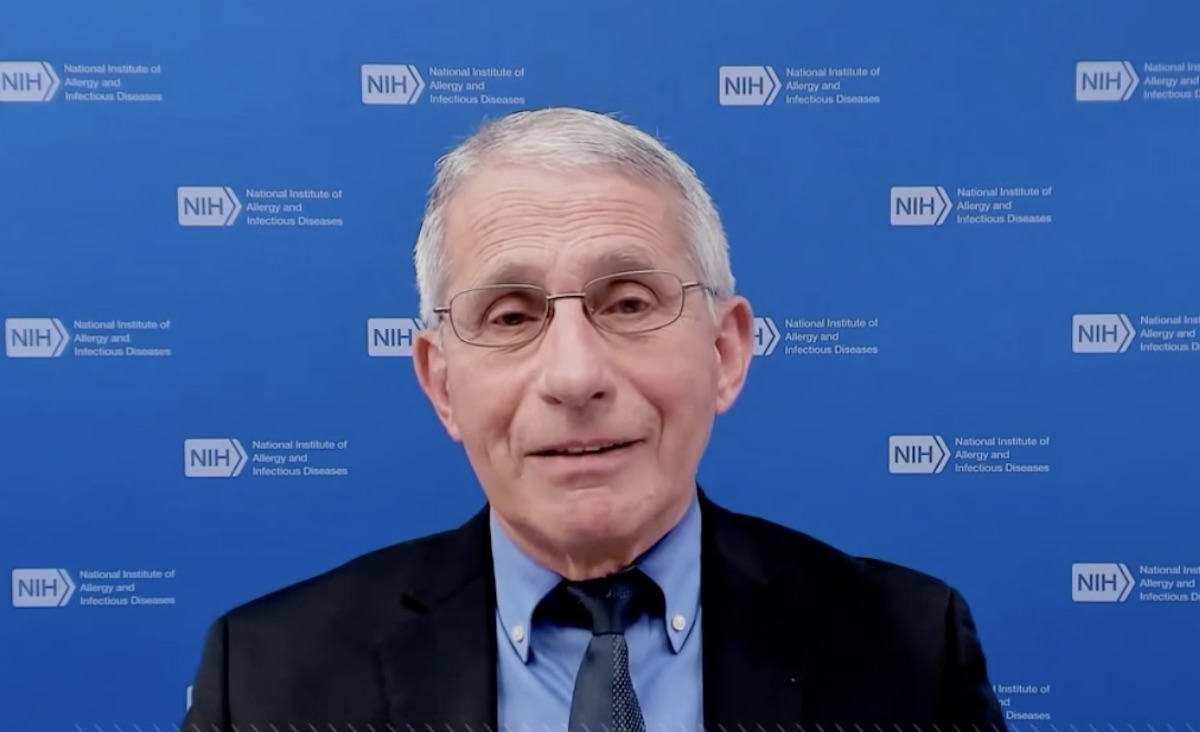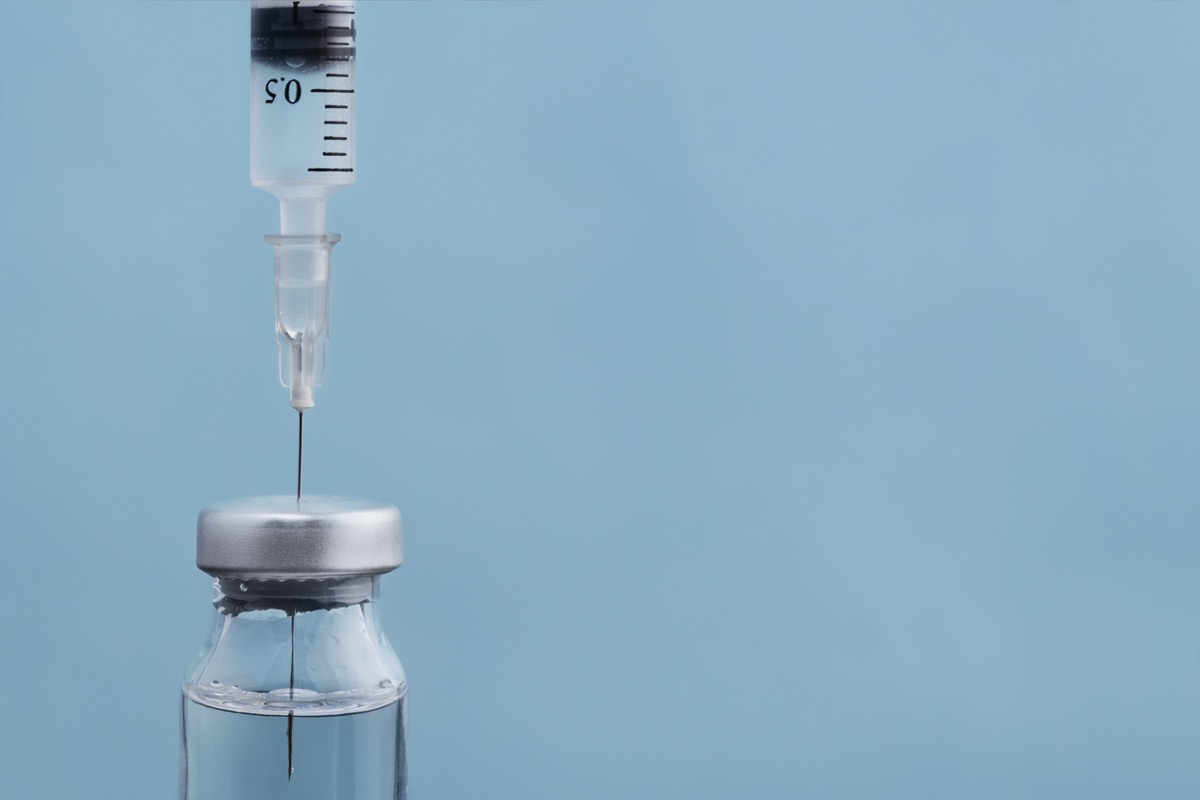AstraZeneca announced the results of its U.S. trial on Monday, which included 32,449 participants, two-thirds of whom received two doses of the vaccine with four weeks in between doses. The findings claimed the vaccine was 79 percent effective at preventing COVID symptoms. Data also revealed that the vaccine was 100 percent effective at preventing hospitalization and severe disease. “This analysis validates the AstraZeneca COVID-19 vaccine as a much-needed additional vaccination option, offering confidence that adults of all ages can benefit from protection against the virus,” Ann Falsey, MD, a professor of medicine and co-lead principal investigator for the trials, said in a statement. And for more on the shot that leaves you with fewer side effects, check out This COVID Vaccine Has the Lowest Rate of Side Effects, Data Shows. The NIH’s National Institute of Allergy and Infectious Diseases (NIAID) revealed in a statement Tuesday that its Data and Safety Monitoring Board (DSMB)—an independent group within the NIH that reviews clinical studies—has questioned the information released by AstraZeneca. According to a press release, NIAID, Biomedical Advanced Research and Development Authority (BARDA), and AstraZeneca were contacted regarding the COVID-19 vaccine clinical trial information that was initially released.ae0fcc31ae342fd3a1346ebb1f342fcb “The DSMB expressed concern that AstraZeneca may have included outdated information from that trial, which may have provided an incomplete view of the efficacy data,” the statement read. “We urge the company to work with the DSMB to review the efficacy data and ensure the most accurate, up-to-date efficacy data be made public as quickly as possible.” Like all other vaccines approved in the U.S.—from Moderna, Pfizer, and Johnson & Johnson—authorization and guidelines for the use of AstraZeneca’s vaccine in the U.S. will be decided on by the Food and Drug Administration (FDA) and Centers for Disease Control and Prevention (CDC). But as for when that will happen, it now remains to be seen. And for more up-to-date COVID news, sign up for our daily newsletter. “This is really what you call an unforced error. Because the fact is: This is very likely a very good vaccine, and this kind of thing does … nothing but really cast some doubt about the vaccines,” NIAID director Anthony Fauci, MD, said on ABC’s Good Morning America on Tuesday. “If you look at it, the data are quite good, but when they put it into the press release it wasn’t completely accurate,” he explained. The DSMB “wrote a rather harsh note to them and with a copy to me saying that in fact they felt that the data that was in the press release were somewhat outdated and might in fact be misleading a bit, and wanted them to straighten it out.” Less than 12 hours after the NIH revealed their apprehension towards the data, AstraZeneca released a statement about the numbers published on Monday. The pharmaceutical company said the data was “based on a pre-specified interim analysis with a data cut-off of 17 February.” AstraZeneca said they’re now doing a statistical analysis of the data to confirm the vaccine’s efficacy. “We will immediately engage with the independent data safety monitoring board (DSMB) to share our primary analysis with the most up to date efficacy data,” AstraZeneca stated. “We intend to issue results of the primary analysis within 48 hours.” And for more up-to-date vaccine news, This Is Why Half of People Have Stronger Vaccine Side Effects, CDC Says. Use of the AstraZeneca vaccine had been temporarily suspended by several European nations over concerns that it was causing blood clots. After the European Medicines Agency (EMA) conducted an investigation and ruled out a clear link between the shot and blood clotting on Mar. 18, most countries have since resumed the rollout of the vaccine. AstraZeneca said the DSMB conducted a specific review of potential clotting issues and did not find any data that concerned them. “The DSMB found no increased risk of thrombosis or events characterised by thrombosis,” AstraZeneca’s Mar. 22 press release read. And if you’re planning to get vaccinated anytime soon, Don’t Do This Two Hours Before or After Your Vaccine, Doctors Warn.

